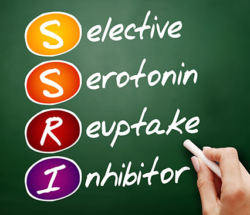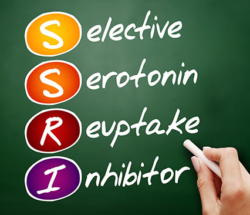According to the Anxiety and Depression Association of America, anxiety disorders are the most common mental complications in the United States affecting more than 40 million adults in the US or at least 18% of the population every year. Although anxiety disorders are highly treatable, only about 36% of anxiety patients receive treatment.
Several factors can lead to anxiety. Some of these factors include brain chemistry, genetics, personality, and drastic life changes. We are all, therefore, prone to anxiety.
Anxiety affects us differently. Some people might feel unprepared, unsure, or nervous when trying something new or before giving a speech. These feelings may manifest in physical symptoms such as headaches, shortness of breath, or clammy hands.
Anxiety is actually an adaptive response that can help us cope with challenges or day to day threats. These responses can help identify and avert potential threats, encourage us to work harder, etc. However, when we don’t respond well to these triggers, they can become maladaptive leading to clinical anxiety disorders.
There exist many medications to deal with this condition. Some of the common drugs include tranquilizers like Valium and Xanax and selective serotonin reuptake inhibitors like Zoloft and Prozac. While some of these drugs may work, some people may not respond well. There have been cases where patients fail to see any changes or are unable to tolerate the side effects. Also, drugs such as Xanax and Valium can be highly addictive.
For this reason, more and more people are looking for natural alternatives that can help them cope with anxiety disorders. This is where CBD comes in. But the question is, can it work?
First Things First: What Is CBD?
CBD (Cannabidiol) comes from the cannabis plant. It is one of the 120+ chemical compounds (cannabinoids) that are naturally produced by the plant. Unlike THC (tetrahydrocannabinol), another popular compound in the cannabis plant, CBD is not psychoactive. This means that you won’t get the ‘high’ that is usually associated with cannabis consumption.
Can CBD Help With Anxiety?
Cannabidiol has been touted for its many health benefits, including remedying chronic pain, depression, cancer symptoms, and now anxiety.
How Does CBD Work?
Before we delve deeper into this subject, it is worth noting that most studies describing how CBD works for anxiety are preclinical and based on animal models. This means that more research is still needed to ascertain the effectiveness of CBD as a natural remedy for anxiety.
That said, Cannabidiol exerts several actions on the brain that may help explain why it may be an effective treatment for anxiety disorders.
5-HT1A Agonist
5-HT1A is a subtype of the serotonin receptor. According to experts, anxiety can be treated using medications or drugs that target the serotonin system.
 Findings indicate that CBD could represent a novel fast antidepressant drug.
Findings indicate that CBD could represent a novel fast antidepressant drug.
Selective serotonin reuptake inhibitors (SSRI) such as Zoloft and Prozac treat anxiety by inhibiting the re-absorption of serotonin in the brain. This ensures that serotonin is available in the synaptic space, which helps the brain cells to transmit more serotonin signals. It is believed that this can help boost moods and reduce anxiety. (Of course, the actual biological process is more complicated than this)
Just like selective serotonin reuptake inhibitors, Cannabidiol may boost serotonin transmission.
According to a study conducted by Spanish researchers, CBD can enhance 5-HT1A transmission and can actually affect serotonin faster than standard selective serotonin reuptake inhibitors.
Hippocampal Neurogenesis
The hippocampal is a vital brain area responsible for critical roles such as cognition and brain formation. Scans on patients suffering from anxiety or depression have often shown a smaller hippocampus. Depression and anxiety medications, therefore, aim at triggering neurogenesis (birth of new neurons)
In a study involving mice, it was discovered that repeated application of Cannabidiol may help boost neurogenesis. A growing body of research suggests a link between CBD, SSRIs, neurogenesis and anxiety and depression.
Based on these findings, researchers are bringing forward data suggesting that CBD may help improve the common anxiety-disorders in humans.
Human Studies Suggesting CBD May Help Treat Anxiety
A study carried out in 2010 found out that CBD could help remedy symptoms in social anxiety disorder (SAD) patients. Follow up brain scans on the group revealed altered blood flow to the brain parts concerned with anxiety and mood regulation. In this study, CBD was not only found to be effective in making people feel better but also altered the way their brains responded to stress and anxiety.
In 2011, another study was conducted to find out whether CBD could remedy social anxiety disorder. In a public speaking test that followed, people who received 600mg CBD experienced less anxiety, had less cognitive impairment, were more relaxed and comfortable than their counterparts who received a placebo.
 CBD inhibits the fear of speaking in public, a symptom of social anxiety disorder.
CBD inhibits the fear of speaking in public, a symptom of social anxiety disorder.
A 2015 analysis of existing studies concluded that Cannabidiol has great potential as a natural remedy for different forms of anxiety including panic disorder, social anxiety disorder, post-traumatic stress disorder, generalized anxiety disorder, and obsessive-compulsive disorder.
In 2017, researchers from Sao Paulo University in Brazil found out that CBD helped reduce anxiety in patients with social phobia.
Wrapping Up
It is clear that more studies on human are still needed to ascertain the link between anxiety and CBD. However, preliminary findings validating CBD’s efficacy as a natural remedy for anxiety are promising.
It is important that all stakeholders in the health sector come together and see if there is a way to improve this natural compound to produce even better results. This should be treated as a matter of urgency, given the huge economic and social cost that anxiety impacts not only in the US but across the globe.

Sam is a freelance writer specializing in the cannabis industry. His topics include medical marijuana, hemp industry, health benefits, therapeutic properties and government regulation.











